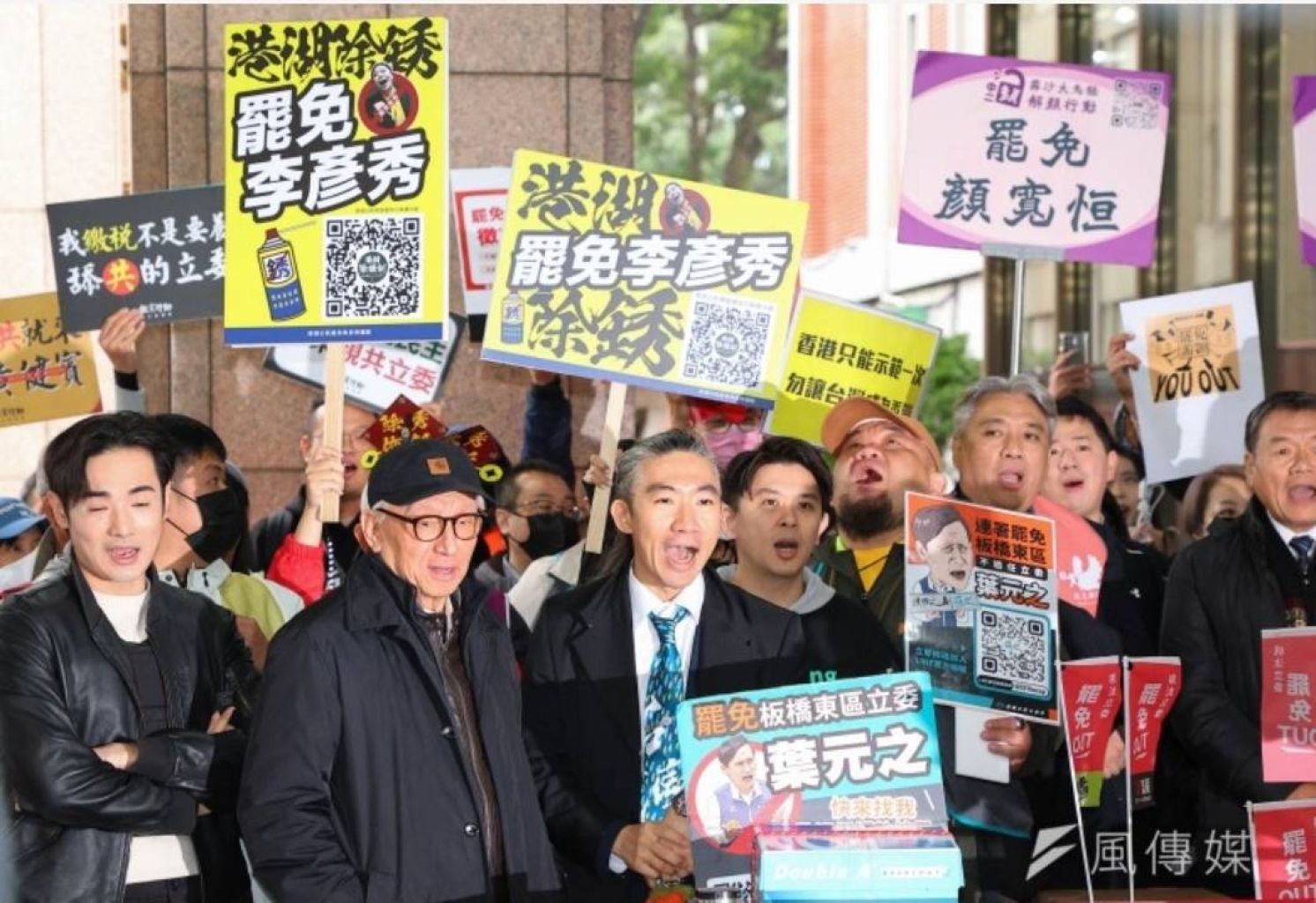
Stop the Recall Wars and Focus on Tariffs and the AI Storm
China Times Editorial, February 6, 2025
As the world faces the dual crises of the tariff war waged by President Donald Trump of the United States and the disruptive impact of DeepSeek on American technology stocks, Taiwan's ruling Democratic Progressive Party (DPP) seems preoccupied with large-scale political recalls. Amid global concerns over Taiwan's lagging industrial chain, rising tensions across the Taiwan Strait, and the need for strategic adjustments, the DPP's focus on infighting is disconcerting. Even when Vice Chairman Yeh Yung-sung of the Xiamen Taiwanese Business Association publicly urged President Lai Ching-te to "stop stirring up trouble" and opposed the recall campaigns, President Lai offered no response, as if indifferent to the warning.
Mr. Trump has returned with a vengeance, immediately imposing tariffs on Mexico, Canada, and China, signaling the arrival of the Trump 2.0 era. He has also announced plans to levy tariffs on semiconductor imports, accusing the Taiwan Semiconductor Manufacturing Company (TSMC) of "stealing" America's chip industry and opposing CHIPS Act subsidies under the previous administration. The AI competition has escalated to an intense level, and if Trump signs an executive order imposing these tariffs, Taiwan's semiconductor industry will face significant turmoil.
Meanwhile, China's DeepSeek has made headlines by developing an AI large language model (LLM) comparable to ChatGPT at a fraction of the cost—only $5.58 million—sending shockwaves through Silicon Valley and causing AI-related stock prices to plummet. While CEO Sam Altman of OpenAI admitted his mistakes and expressed a desire to learn from DeepSeek's transparency in reasoning processes, Premier Cho Jung-tai responded with reflexive anti-China measures, banning DeepSeek's use in government agencies. Instead of promoting substantive AI development, former Minister of Digital Affairs Audrey Tang, demonstrated a low-level workaround to circumvent DeepSeek's filters to discuss the Tiananmen Square Incident. Unsurprisingly, after spending NT$20 billion (about US$608 million), the Ministry of Digital Affairs has only managed to produce a lackluster app named "Dot-Line-Plane."
The interconnected challenges of Trump's tariff policies and DeepSeek's AI disruption are reshaping U.S.-China-Taiwan economic relations. In response to these global pressures, TSMC had to convene a board meeting in the United States. Taiwan's government should be working around the clock to address these critical challenges. Yet, disappointingly, the administration seems more focused on orchestrating massive recall campaigns.
On the first business day after the Chinese New Year holiday, the Central Election Commission received 20 recall cases targeting 19 Kuomintang (KMT) legislators and suspended Hsinchu Mayor Kao Hung-an from the Taiwan People's Party (TPP). DPP caucus whip Legislator Ker Chien-ming brazenly declared, "Save our country ourselves," urging voters to recall opposition lawmakers by September 1, aiming to force by-elections and secure control of the legislature. His statement confirms that the recall movement, ostensibly driven by civic groups, is in fact orchestrated by pro-DPP forces. Premier Cho, not to be outdone, submitted a controversial amendment to the Public Officials Election and Recall Act to the Legislative Yuan during the holiday season, deliberately delaying its effect to give the recall campaigns a strategic advantage. Meanwhile, President Lai has merely called for "harmony" without restraining his party members, effectively endorsing Ker's mobilization efforts.
Recalls are meant to serve as a mechanism to hold unfit officials accountable, yet the DPP has weaponized them as a tool for partisan warfare. Unwilling to accept the current balance of political power—where the opposition holds a legislative majority—the DPP is pushing large-scale recalls to regain control. As a result, since President Lai took office over six months ago, the nation has been mired in political instability, with no significant policy achievements.
President Lai's indifference to Taiwanese business leaders' appeals to "stop stirring up trouble" underscores his political calculations. He hopes that successful recalls will allow the DPP to regain full control of the legislature. If the recalls fail, then he can conveniently blame "independent civic actions" and evade responsibility.
However, the DPP's plan is unlikely to succeed, as the KMT is poised to fight back with a tit-for-tat recall strategy. Once blue-white cooperation intensifies, Taiwan could spiral into a prolonged "recall war," marked by endless political strife, stalled governance, and economic stagnation. In such a scenario, the biggest losers will be the Taiwanese people.
Recalls have become a divisive force in Taiwan politics, wasting substantial social resources and polarizing communities. One prominent example was the recall campaign against Keelung Mayor Hsieh Kuo-liang, which, despite being nominally led by civic groups, was widely seen as orchestrated by DPP Secretary-General Lin Yu-chang, who formerly served as mayor. Although Hsieh ultimately defeated the recall attempt, both sides expended significant resources, leaving little to show for Keelung's development.
Taiwan stands at a critical juncture in global competition. The semiconductor industry faces tariff pressures from the United States, AI technology development is challenged by fierce competition from China, and cross-strait tensions are escalating. In such circumstances, President Lai should be leading efforts to address these challenges by mediating legislative disputes, resolving policy disagreements, and guiding the DPP toward substantive policy discussions focused on national development. Only then can Taiwan break free from its cycle of internal strife and regain momentum on the global stage.
From: https://www.chinatimes.com/opinion/20250206004062-262101?chdt